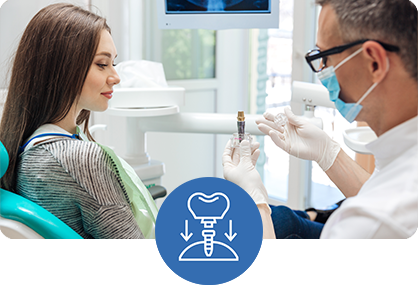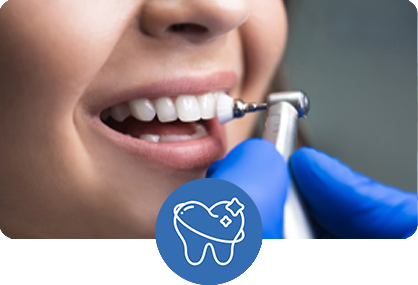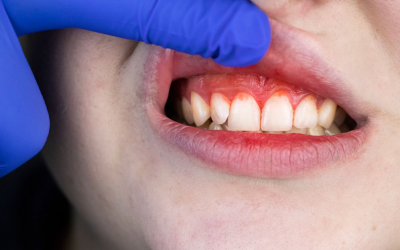As individuals age, maintaining optimal oral health and functionality becomes increasingly critical for overall well-being. Dental implants represent an advanced solution for seniors seeking to replace missing teeth with natural-looking, fully functional restorations. These sophisticated tooth replacement systems can significantly improve masticatory function and enhance quality of life for older adults. This comprehensive guide examines the most suitable dental implant options for seniors, considering their unique physiological needs and health considerations.
Key Takeaways
- Dental implants provide a durable, long-term solution for tooth replacement in seniors
- Multiple implant modalities are available, including single-tooth replacements, implant-supported bridges, and full-arch restorations
- Candidacy assessment considers overall health status, bone density, and oral hygiene maintenance capabilities
- The implant process involves comprehensive consultation, surgical placement, osseointegration period, and prosthetic restoration
- Post-operative care and long-term maintenance are essential for implant success
- Implants offer superior comfort and functionality compared to conventional removable prosthetics
- Selection of an experienced implant specialist is crucial for optimal outcomes
Understanding Dental Implants
Dental implants are titanium-based artificial tooth roots surgically placed into the jawbone to support prosthetic restorations. They serve as a stable foundation for crowns, bridges, or implant-retained dentures. The implant fixture, typically composed of biocompatible titanium, undergoes osseointegration with the surrounding bone tissue, creating a secure and reliable anchor. This biological process enables implants to function similarly to natural tooth roots while preventing the progressive bone resorption that commonly occurs following tooth loss.
Benefits of Dental Implants for Seniors
Dental implants offer numerous advantages for the senior population, making them an excellent choice for tooth replacement:
Benefits of Dental Implants for Seniors
- Enhanced masticatory efficiency and dietary diversity
- Improved aesthetics and restored confidence
- Preservation of alveolar bone structure
- Superior longevity and durability
- Improved speech clarity compared to removable prosthetics
- Enhanced nutritional intake through improved chewing capability
- Maintenance of facial support and vertical dimension
- Increased comfort and confidence in social interactions
Dental implants have amazing benefits for seniors. They facilitate improved nutritional intake through enhanced chewing function, which is particularly important for maintaining health in advancing age. Additionally, implants preserve facial aesthetics and promote psychological well-being through increased confidence in social settings.
Types of Dental Implants Suitable for Seniors
Several implant treatment modalities are appropriate for senior patients, with selection based on individual clinical presentations and treatment objectives:
Single Tooth Implants
Individual implant-supported crowns for isolated tooth replacement
Implant-Supported Bridges
Fixed prosthetics replacing multiple adjacent teeth
Full Arch Implants
Complete maxillary or mandibular arch rehabilitation
Mini Implants
Narrow-diameter implants for minimally invasive placement
Full mouth implant restoration represents an excellent treatment option for seniors requiring comprehensive oral rehabilitation. This approach can dramatically improve quality of life for patients experiencing extensive tooth loss or inadequate conventional denture retention, providing stable, securely retained prosthetics that restore optimal function.
Candidacy for Dental Implants in Seniors
Advanced age alone does not preclude implant treatment; however, several factors must be carefully evaluated:
- Overall systemic health: Conditions such as uncontrolled diabetes or immunocompromised states may impact healing outcomes.
- Alveolar bone quality and quantity: Adequate bone volume and density are essential for successful implant integration.
- Periodontal health status: Healthy gingival tissues and absence of active periodontal disease are prerequisites.
- Tobacco use: Smoking significantly compromises implant success rates and healing capacity.
- Oral hygiene maintenance capability: Patients must demonstrate ability to maintain proper implant hygiene protocols.
A comprehensive clinical assessment is essential to determine implant candidacy. This evaluation includes thorough medical history review, clinical examination, and advanced imaging studies to assess bone architecture and anatomical considerations.
The Dental Implant Procedure for Seniors
The implant treatment process involves several sequential phases:
- Initial consultation and treatment planning: Comprehensive assessment and development of individualized treatment protocols.
- Pre-surgical preparation: Potential adjunctive procedures such as bone grafting or sinus augmentation if indicated.
- Implant placement surgery: Precise surgical placement of titanium implants under appropriate anesthesia and sedation.
- Osseointegration period: Healing phase allowing biological integration between implant and bone tissue.
- Prosthetic restoration: Fabrication and delivery of final implant-supported restorations.
Understanding the recovery process for full-arch dental implants is particularly important for senior patients considering comprehensive treatment. While the complete process may span several months, properly maintained implants can deliver durable function and aesthetics.
Recovery and Aftercare for Senior Implant Patients
Post-operative care and long-term maintenance protocols are critical for implant success:
- Strict adherence to post-surgical instructions and medication regimens.
- Implementation of meticulous oral hygiene protocols including specialized implant maintenance techniques.
- Regular professional maintenance appointments for monitoring and preventive care.
- Cessation of tobacco use and moderation of alcohol consumption.
- Maintenance of proper nutrition to support healing and overall oral health.
Proper aftercare protocols are essential for dental implant success. Senior patients should be prepared to commit to comprehensive daily oral hygiene routines and regular professional maintenance visits to ensure long-term implant stability and health.
Addressing Common Concerns for Seniors
Senior patients frequently express specific concerns regarding implant treatment:
- Pain management: Advanced anesthetic techniques and sedation options ensure patient comfort throughout the procedure and recovery period.
- Medical comorbidities: Interdisciplinary collaboration with medical providers ensures safe treatment planning for patients with systemic health conditions.
- Implant longevity: With proper maintenance, implants demonstrate excellent long-term success rates and can function reliably for extended periods.
- Dietary modifications: While temporary dietary restrictions may be necessary during healing, patients typically return to normal eating patterns following complete integration.
Open communication with the treatment team is essential to address these concerns and provide patients with comprehensive information necessary for informed decision-making.
Comparing Dental Implants to Other Options for Seniors
While dental implants offer superior benefits, understanding comparative treatment options is valuable for comprehensive treatment planning:
Dental Implants for Seniors: Clinical Considerations
- Demonstrate excellent efficacy in the senior population comparable to younger patients
- Facilitate improved masticatory function, speech, and nutritional status
- Preserve alveolar bone architecture and maintain facial support
- Enhance psychological well-being and social confidence
- Require comprehensive pre-treatment medical and dental evaluation
- Necessitate adequate bone volume and density for successful placement
- Offer exceptional longevity with appropriate maintenance protocols
- Provide superior comfort and stability compared to conventional removable prosthetics
- May require adjunctive bone augmentation procedures in compromised sites
- Benefit from treatment by experienced implant specialists
Understanding the advantages of dental implants compared to conventional dentures enables senior patients to make informed treatment decisions. While implants may require greater initial investment, they typically provide superior long-term value through enhanced function and comfort.
Choosing the Right Dental Professional for Implant Surgery
Selection of an appropriately qualified clinician is paramount for successful implant outcomes. Key considerations include:
- Advanced training and certification in implant dentistry
- Extensive experience treating senior patient populations
- Utilization of current technology and evidence-based treatment protocols
- Positive patient testimonials and documented clinical outcomes
Selecting a highly qualified implant specialist is crucial for ensuring optimal treatment outcomes in senior patients. Patients should inquire about practitioner credentials, experience levels, and approach to senior dental care.
Conclusion: Making an Informed Decision
Dental implants represent an excellent tooth replacement solution for senior patients, offering superior function, aesthetics, and quality of life improvements. However, treatment success depends upon careful patient selection and comprehensive treatment planning. Thorough evaluation of individual health status, lifestyle factors, and long-term oral health goals is essential.
When considering implant treatment, consultation with a qualified implant specialist is crucial. These professionals can conduct comprehensive assessments, discuss treatment alternatives, and develop individualized treatment plans. With proper care and maintenance, dental implants can provide seniors with restored oral function and enhanced quality of life for many years.
By understanding the available implant options for seniors and recognizing both benefits and considerations, older adults can make well-informed decisions regarding their oral health care. Whether addressing single-tooth replacement or comprehensive oral rehabilitation, dental implants represent a significant advancement in restorative dentistry that can substantially improve outcomes for seniors experiencing tooth loss.

 718-979-2121
718-979-2121






